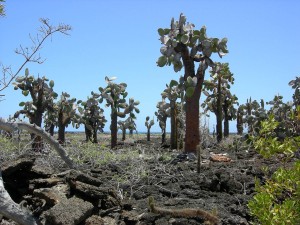About the Department
Did you know that Michael Jordan was a Geography major? Did you know that Geography classes have been a part of UNC since 1913, and that graduate work dates to the 1920s? The first Master’s degree in Geography was awarded in 1926 and the first doctorate in 1932! Did you know that during World War II, the Department taught a political geography class sponsored by the Navy? The Department of Geography became a stand-alone Department in 1962 after 26 years in the Department of Geology and Geography. The first Chair of the Department of Geography was Dr. John Douglas Eyre. The Department of Geography has just been renamed the Department of Geography and Environment in 2023. The new name better reflects the scope of our teaching and research.
 Geography has an important legacy at Carolina, and the Department is proud to continue its mission of education, research, and service to the community and the world about the importance of geographic knowledge. At Carolina Geography, you can explore the world and find yourself.
Geography has an important legacy at Carolina, and the Department is proud to continue its mission of education, research, and service to the community and the world about the importance of geographic knowledge. At Carolina Geography, you can explore the world and find yourself.
The Department has evolved significantly since its early days when we only had one faculty member, to being a world-class department with 23 tenure-track faculty and a number of teaching and research faculty, covering a wide range of sub-fields in Geography. We conduct research all over the world, some of which investigate the most pressing social and environmental questions facing our planet. We educate students about how people and the environment interact in critical ways to shape outcomes.
The UNC-CH Geography and Environment Department provides an excellent program of courses and related activities for students interested in environmental science and policy, global issues and international studies, regional economic development, health geography, urbanism, place and culture. Faculty research and graduate training specialize in five teaching and research areas: (1) Earth and Environment, (2) Geographic Information Science and Geovisualization, (3) Nature and Society, (4) International Development and Globalization, and (5) Culture, Space, and Identity.
The Earth and Environment geographers, including Professors DelVecchia, Konrad, Moody, Riveros-Iregui, Song, Taillie, Walsh, and Wise, focus on issues of hydrologic and fluvial systems, sediment transport, biogeography and ecosystem carbon and water budget processes, landscape level nutrient cycling, hydro-climate, climate variability and ecosystem response.
Geographic Information Science and Geovisualization scientists including Professors Arce-Nazario, Delamater, Emch, Gray, Havice, Liang, Moody, Song, and Walsh focus research on spatial analysis of environmental and human systems of the tropics, urban environments and biogeographic distributions. They develop and apply state-of-the-art techniques in geographic information systems, remote sensing, image processing, and terrain analysis to a variety of ecosystem and human-environment problems.
Geographers in the department interested in issues relating to Nature and Society focus on analytical and theoretical perspectives in ecology, cultural ecology, political ecology, and science and technology studies. These include Allred, Arce-Nazario, Delamater, Emch, Gray, Havice, Kirsch, Matamoros-Mercado, Moody, Rivers, Purifoy, Valdivia, Song, and Wise.
Geographers in the Culture, Space, and Identity cluster have current research interests in political economy, cultural-social geographies, and health geographies. In addition, the study of social spaces introduces students to various aspects of the history and philosophy of geography, spatial analysis and public policy, social theory and cultural studies, gender studies and feminism, and science and technology studies. Faculty members in this cluster include Allred, Birdsall, Purifoy, Gökariksel, Havice, Kirsch, Lentz, Martin, Matamoros-Mercado, Olson, Pickles, Smith, Rivers, and Valdivia.
The Globalization and International Development group studies diverse processes of globalization and the multi-scalar dynamics and networks of development across global spaces. Faculty conducting research in this area include Allred, Birdsall, Gökariksel, Gray, Havice, Kirsch, Martin, Olson, Pickles, Rivers, Smith, and Valdivia.

